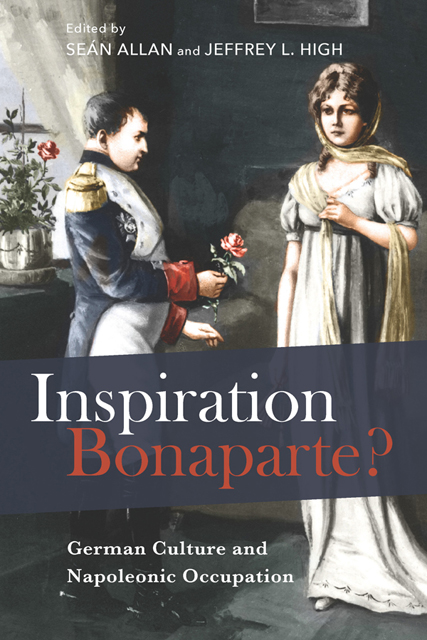13 - Arnold Schoenberg’s Setting of Byron’s Ode to Napoleon: Fighting Hitler’s Regime in Byron’s and Beethoven’s Wake
Published online by Cambridge University Press: 04 January 2024
Summary
On January 13, 1942, the League of Composers, a society whose mission was to “encourage, support and make possible the production of music representative of the present,” sent a letter to Arnold Schoenberg (1874–1951), whose music it had championed long before he arrived in the United States as an exile, asking him to contribute a piece of chamber music to its jubilee concert that was scheduled to take place at the end of that year in the Town Hall of New York City. Four days later, in a letter dated January 17, 1942, Schoenberg accepted the invitation, but it took him much longer, in fact, two full months, before he was able to notify Claire R. Reis, the League’s president, which instruments his piece would require, as well as that he was planning to set a poem by Lord Byron (1788–1824) to music. The same day, March 12, he drafted a first version of the score.
In an unfinished essay, also written in 1942, Schoenberg answers the question: “How I Came to Compose the Ode to Napoleon”? I quote this text in full because it succinctly describes the historical, political, and musical horizon within which this composition was conceived:
The League of Composers had asked me to write a piece of chamber music for their concert season. It should employ only a limited number of instruments. I had at once the idea that the piece must not ignore the agitation aroused in mankind against the crimes that provoked this war. I remembered Mozart’s Marriage of Figaro, supporting repeal of the jus primae noctis, Schiller’s Wilhelm Tell, Goethe’s Egmont, Beethoven’s Eroica and Wellington’s Victory and I knew it was the moral duty of intelligencia to take a stand against tyranny.
But this was only a secondary motive. I had long speculated about the more profound meaning of nazi philosophy. There was one element that puzzled me extremely: the resemblance of the valueless individual being’s life in respect to the totality of the community or its representative: the queen or Fuehrer. I could not see why a whole generation of bees or of Germans should live only in order to produce another generation of the same sort, which on their part should also fulfill the same task: to keep the race alive.
- Type
- Chapter
- Information
- Inspiration Bonaparte?German Culture and Napoleonic Occupation, pp. 280 - 302Publisher: Boydell & BrewerPrint publication year: 2021

